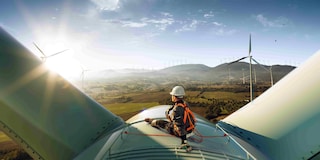
Sustainability
Back in 2013, when our Marine and Protective Coatings business launched Intersleek1100SR from its International® brand, the pioneering product sent shockwaves rippling through the industry.
It was the world’s first biocide-free fouling control coating to feature patented slime release technology that could tackle micro-fouling on ships’ hulls. It has since set the standard for foul release technology, having been applied to more than 3,000 vessels.
The product works by removing any slime built up during docking – it’s released when the vessel travels through the water. This helps to significantly reduce drag, improve fuel efficiency and reduce CO2 emissions.
In fact, real-world performance data compiled from ships applied with Intersleek 1100SR over the past ten years shows the coating has slashed ship fuel bills by $8 billion and reduced 41 million tons of CO2 emissions.
“Our groundbreaking Intersleek range has set new standards for efficiency, performance and sustainability in the marine industry when it comes to biocide-free performance,” says Chris Birkert, AkzoNobel’s Marine Coatings Segment Manager.
He goes on to explain that the numbers are even more impressive when you look at overall performance data that’s been compiled over the last two decades.
“Together with our customers, Intersleek has the largest foul release track record, gathered from 20 years of vessel performance data that proves our coatings have helped save ship owners $19.6 billion dollars in fuel costs and 103 million tons of CO2 to help them hit carbon targets.”
The positive impact being made on the industry by Intersleek is making an important contribution to the company’s ambition of reducing carbon emissions across its full value chain by 50% (absolute) by 2030, taking 2018 as our baseline. It’s part of our efforts to become a carbon neutral company by 2050.
The International Marine Organization (IMO) has similar ambitions. In 2023, it announced new carbon targets for the fleet, which include a 20% reduction in emissions by 2030, a 70% reduction by 2040 – compared with 2008 levels – and the ultimate goal of net zero emissions by 2050[1].
Demand for our high-performance biocide-free technology has therefore risen steeply in the past 18 months as ship owners work to cut CO2 emissions to comply with new carbon regulations and look for proven solutions.
For information about Intersleek 1100SR, take a look at here.
[1] UNCTAD Transport and Trade Facilitation Newsletter No.99 - Third Quarter 2023. LINK.
